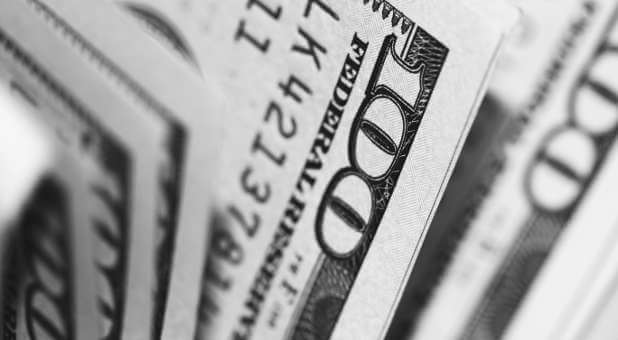The idea that all believers should be wealthy seems offensive, arrogant and prideful at best, and ignorant, exaggerated and misleading, at worst. Yet it is 100% true all the time.
Think about it, if your dad rules the world, then you are royalty on this earth and have access to everything the King has access to. Now, before you decide to jump off my ship and swim to the safety of what you may have been taught your whole life—that poverty and piety go hand in hand—let me be clear that not every believer should be rich because riches and wealth are two completely different things.
I am not saying God wants everyone to revel in a ritzy lifestyle. The truth is that wealth is much bigger than simply having a lot of money. I’d like to propose that a wealth or abundance mindset is a kingdom mindset—it is the internal belief that you are a child of God who, regardless of your circumstances, season or situation, can be confident of His desire to provide for you and never forsake you.
Wealth is a “can do” attitude, a “more than enough” mindset and a “nothing is impossible” belief system. So how do you determine the mark of a wealthy mindset in your own life? It displays itself through radical generosity, extraordinary compassion, sacrificial giving and profound humility. Wealth is always thankful, never jealous, doesn’t brag, celebrates others and looks to the future with hope.
8 Differences Between Wealth and Poverty Thinking
By now, you may be thinking, “How do I know if I’m living with a wealth/abundance mindset?” I have found that one of the easiest ways to explain an otherwise difficult subject is by contrasting two opposing ideas with one another. It is amazing how viewing things in contrasting descriptions can clarify and quantify truth. In fact, in the book of Proverbs the wisest king who ever lived often used contrasting truths held in tension to reveal his ageless wisdom. Here are a few examples from Solomon’s writings:
“Ill-gotten gains do not profit, but righteousness delivers from death” (Prov. 10:2, NASB). Or “He who gathers in summer is a son who acts wisely, but he who sleeps in harvest is a son who acts shamefully” (Prov. 10:5).
Now let me demonstrate the difference between people who engage in “wealth thinking” and people who focus on “poverty thinking” by contrasting these two perspectives with one another. It will be easy to grasp these rather complex concepts through these simple illustrations:
Here are eight differences between a poverty mindset and a wealth mindset:
- Poverty lives for today; wealth leaves a legacy.
- Poverty finds a problem in every opportunity, while wealth finds an opportunity in every problem.
- Poverty feels entitled, while wealth feels empowered.
- Poverty fears the future, while wealth makes history.
- Poverty blames others for its condition, while wealth takes responsibility for things that aren’t its fault.
- Poverty asks, “What are you going to do for me?” Wealth asks, “Who is worthy of my investment?”
- Poverty hangs around with other disgruntled people who validate their accusations. Wealthy people surround themselves with other powerful influencers.
- Poverty votes for candidates who increase their entitlements. Wealth elects officials who will sacrifice today’s comfort for tomorrow’s children.
These contrasts are not meant to be the last word on poverty, riches and wealth. They are simple comparisons to help explain how people in each of these mindsets think. They also help explain why many people are rich, but far fewer of them are wealthy.
Thinking Abundantly is an Inside Job
Furthermore, because true wealth is first a condition of the heart and mind that affects the world around you, and is not necessarily related to how much money you have in the bank, there are many wealthy people who don’t have a lot of assets.
I encourage you to look at your life from a different point of view. Romans 12:2 (NIV) says, “Do not conform to the pattern of this world, but be transformed by the renewing of your mind. Then you will be able to test and approve what God’s will is—his good, pleasing and perfect will.”
I believe God wants to transform the way you think about this topic, and I want to remind you that regardless of your current circumstances, the God of abundance can meet you right where you are. Wealth is believing in the fullness of God’s ability and desire to provide in your life.
It’s the means—resources, strength and wisdom—to create positive outcomes in the midst of lack. It is light in the darkness, healing in sickness, prosperity in poverty, wholeness in brokenness, favor in obscurity, love for the unlovely, beauty for ashes and victory among victims. It is the conviction of John 10:10, which says, “The thief comes only to steal and kill and destroy; I came that they may have life, and have it abundantly.”
After taking stock of where you stand in your mindsets towards God’s abundance, are you surprised? What areas of your thinking on this subject have room to grow and transform? {eoa}
Kris Vallotton is the senior associate leader of Bethel Church in Redding, California, and co-founder of the Bethel School of Supernatural Ministry. He is an author, international speaker and culture leader.
For the original article, visit krisvallotton.com.














































